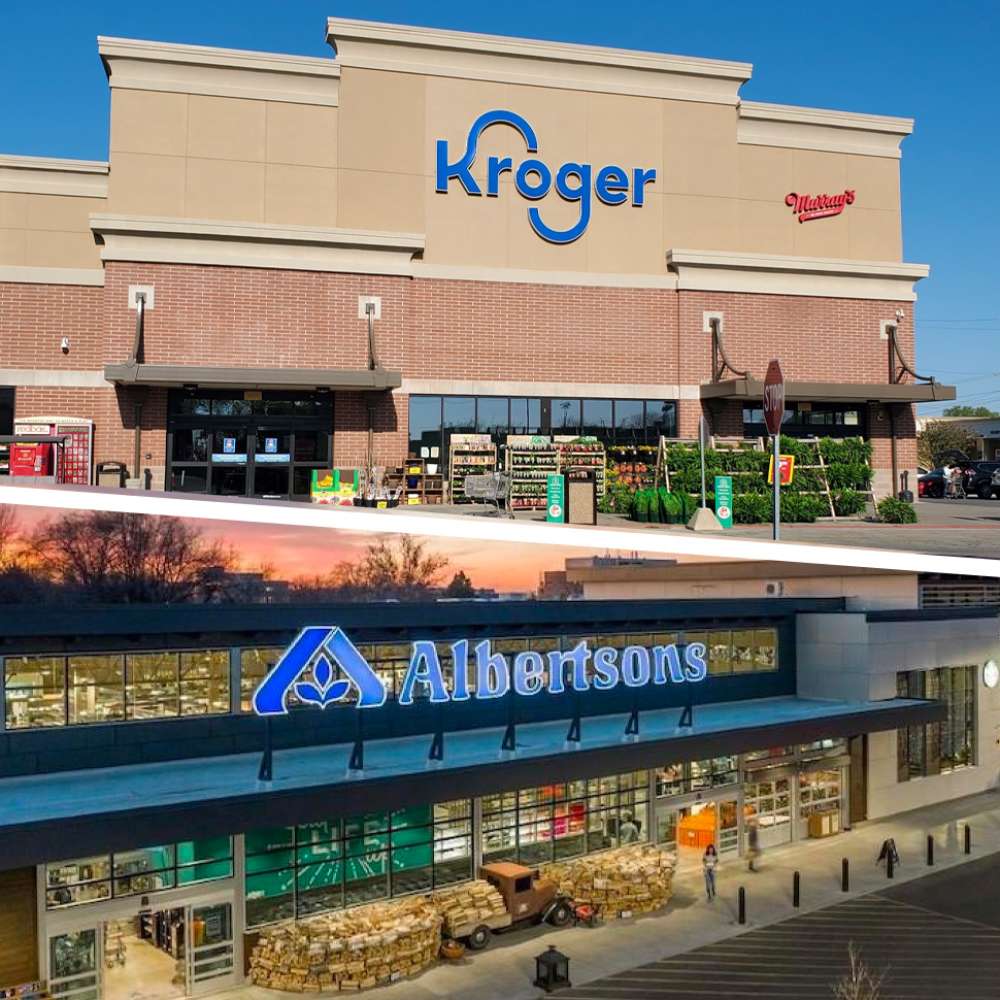A federal judge in Oregon has blocked the Kroger-Albertsons Merger, a proposed $25 billion deal, marking a significant roadblock for what would have been the largest supermarket merger in U.S. history. The judge’s preliminary injunction, which halts the merger, cites concerns that the deal would reduce competition and harm consumers. While the companies can appeal the decision, the ruling casts doubt on the merger’s future.
Background of the Proposed Merger
Announced in 2022, the merger aimed to combine the fifth and tenth-largest grocery retailers in the United States. The two companies collectively own numerous chains, including Safeway, Vons, Harris Teeter, and Fred Meyer. The merger was framed as a strategy to help traditional supermarkets better compete against dominant players like Walmart and Amazon, which have steadily captured market share from traditional grocers over the years.
Kroger and Albertsons, whose workforces are largely unionized, emphasized the need to stay competitive against non-union retail giants like Walmart, Amazon, and Costco. They also cited the rapid growth of Aldi, a German discount chain, as a factor driving the Kroger-Albertsons Merger. Kroger CEO Rodney McMullen claimed the deal would strengthen their ability to challenge these larger, non-unionized competitors and pledged to reduce grocery prices by $1 billion if the merger was approved.
Judge’s Ruling and Consumer Concerns
Judge Adrienne Nelson rejected these arguments, stating that traditional supermarkets are distinct from companies like Walmart and Amazon, which sell a broader range of goods. In her ruling, Nelson noted that the Kroger-Albertsons Merger would eliminate direct competition between Albertsons and Kroger, likely leading to higher prices for consumers.
The ruling also echoed concerns raised by the Federal Trade Commission (FTC), which filed a lawsuit earlier this year to block the deal. The FTC argued that the merger would result in higher grocery prices for millions of Americans and reduce wages and benefits for hundreds of thousands of grocery workers. Judge Nelson agreed, highlighting evidence that the proposed divestiture of 579 stores to C&S Wholesale Grocers would not sufficiently mitigate competition concerns. Nelson added that the divested stores would likely struggle to compete effectively, making them a weak counterbalance to the merged company.
White House and Public Reaction
The White House praised the decision, arguing that the merger would have hurt consumers and workers. National Economic Council Deputy Director Jon Donenberg stated that the proposed deal would have raised grocery prices and lowered wages, making the ruling a win for everyday Americans.
The Kroger-Albertsons Merger faced strong bipartisan opposition from the outset. Unions, small grocers, and lawmakers, including Senator Elizabeth Warren and Senator Mike Lee, voiced concerns about the consolidation’s impact on prices, worker wages, and competition in the grocery sector.
Inflation and Antitrust Scrutiny
The ruling comes at a time when inflation in grocery prices remains a pressing issue. Food prices surged during the pandemic, and the prospect of higher prices due to reduced competition fueled opposition to the deal. Critics of the merger argued that it would further concentrate power in the hands of large corporations, exacerbating existing challenges for independent grocers.
The case has broader implications for antitrust enforcement and corporate consolidation. The FTC, under outgoing chair Lina Khan, has taken an aggressive stance against monopolistic practices, launching antitrust lawsuits against major players like Google and Amazon. Judge Nelson’s ruling reflects this renewed focus on preventing corporate mergers that could harm consumers and stifle competition.
Struggles of Small Grocers
Independent grocery stores have long opposed the Kroger-Albertsons merger, arguing that it would give the combined company undue leverage with suppliers. This would make it harder for small grocers to compete and stock their shelves.
Consolidation in the grocery industry has already accelerated in recent decades. According to the Agriculture Department, the top 20 retailers controlled 64% of total food sales in 2019, more than double their share in 1990. Traditional grocery stores have also lost significant ground to Walmart, Costco, dollar stores, and online retailers.
The share of grocery spending at traditional supermarkets dropped from 80% in 1990 to just 62% in 2012, reflecting the growing dominance of alternative retailers.
Advocates Applaud the Decision
Advocates for stricter antitrust regulations welcomed Judge Nelson’s ruling. Rebecca Wolf, a senior food policy analyst at Food & Water Watch, stated that persistently high food prices are already burdening Americans, and a merger of this scale would have exacerbated the problem.
As the case unfolds, the blocked Kroger-Albertsons merger is seen as a significant victory for antitrust enforcement, signaling a broader effort to curb corporate consolidation and protect consumers in critical markets.







